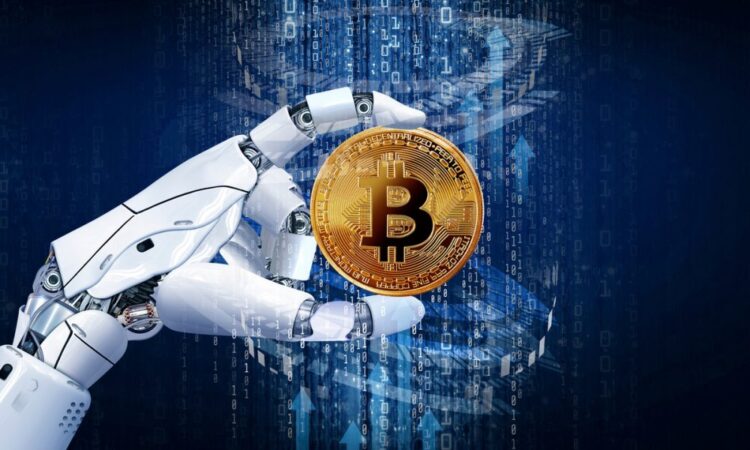
The recent boom in artificial intelligence (AI) has the potential to reshape the crypto industry.
That’s according to a June 1 report by cryptocurrency exchange Coinbase, which notes that despite a wealth of media attention, AI investments have been declining.
“That said, the moderation in VC investing is not unique to the AI sector, and overall, there’s still a record amount of dry powder that ultimately needs to find a home,” wrote David Duong, Coinbase’s head of institutional research.
“We think the intersection of AI and crypto represents an important opportunity for entrepreneurs looking to build in Web3.”
The report said the crypto projects involving AI models are still relatively rare, accounting for just 0.07% of the total crypto market cap.
Duong mentioned a number of ways crypto and AI can work together. For example, he argued that “cryptocurrency platforms can make AI systems more accessible,” letting people contribute to its use and development at a time when a handful of major players dominate the generative AI space.
The report also contends that the crypto world can help combat the danger of AI being used to promote disinformation, with blockchain tech being used to authenticate the provenance of media such as video, music and images.
“Taking this a step further, blockchains could be used to create an auditable track record of the decision-making processes used by AI algorithms themselves, which otherwise tend to be opaque and cannot be easily scrutinized,” Duong wrote.
Among the VC operations that are investing in AI is the British firm Moonfire Ventures, which is, in fact, using the technology to guide funding decisions, founder Mattias Ljungman told PYMNTS in an interview last week.
“It makes us a bit more effective at identifying good opportunities,” Mike Arpaia, a partner at the firm, added. “It’s also just a fun and an interesting way to participate in an emerging technology which is going to be very transformative.”
To that end, Moonfire, which recently raised $115 million to further AI-centric early-stage startups in Europe, can filter through 50,000 and 60,000 funding applications each week, whittling that number down to about 100 opportunities matching its investment thesis.
With AI and machine learning doing the heavy lifting, Ljungman said Moonfire now has more time to focus on a crucial aspect of the investment process: engaging and building relationships with founders.
“Using these systems allows us to have that time and efficiency to build relationships with founders and cater to their needs as they take on what is usually a very bold vision of changing an ecosystem and ultimately society [at large],” he said.






